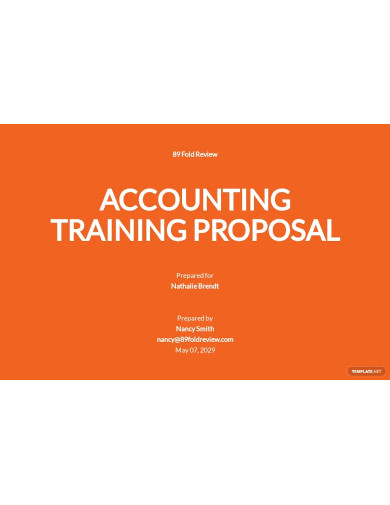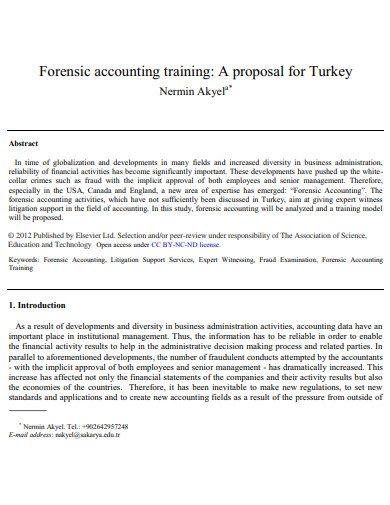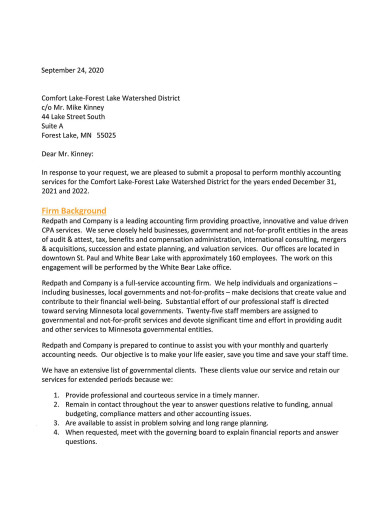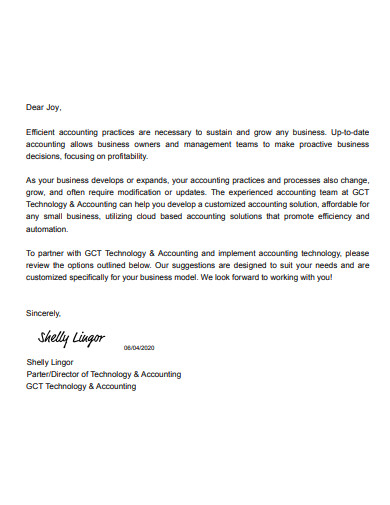Accounting is one of the most important aspects of every entity may it be business, nonprofit, or government. Accounting help balance financial matters in every organization and agency and to do these tasks accountants are the ones qualified enough to do this. However, if accountants know the field of accounting, sometimes they need helpful pointers to improve their accounting duties. One way to do this is to attend accounting training sessions. Accounting trainers can help accountants through training and learning new skills and knowledge. For trainers to do their training, they have to tap into accounting agencies, companies, and individuals to seek their need for training. To do that they need to propose their services to them. Read the article to know how to write an accounting training proposal.
3+ Accounting Training Proposal Samples
1. Accounting Training Proposal

2. Sample Accounting Training Proposal
3. Simple Accounting Training Proposal
4. Accounting Training Proposal Example
What is Accounting?
Accounting is the process of summarizing, analyzing, and recording financial transactions for agencies, regulators, and tax collection entities. The person who does accounting duties is called an accountant. They examine financial records to check for their accuracy, calculates taxes, prepare tax returns, recommend ways to decrease costs, boost revenues, and increase profits and make sure individuals and organizations are abiding by laws and regulations.
How to Write an Accounting Training Proposal
1. Know First Your Client’s Needs and Wants
Before you write your proposal, gather important information about your potential clients such as their background, needs, and concerns. This information can give you some insights into who they are and what they do. This information will assist you in planning and customizing the proper training for your clients.
2. Start With the Title Page and Executive Summary
Now that you’ve gathered all the important information about your client, it’s time to start drafting your proposal. Begin with a title page where you will introduce yourself and the purpose of the proposal. The next section is the executive summary. This is where you will focus on highlighting the challenges the clients facing, and your plans to solve those challenges.
3. List Down the Training Topics You Plan to Do
This section is where you explain what training topics you will present to your clients and how these topics can help the client address the problem they’re facing. Whatever solution you offer, it’s important to let the client know how this will benefit them.
Some topics that are usually discussed in accounting training sessions are in the field of auditing, fraud and forensic accounting, payroll administration, retirement plan administration, sales and use tax, insurance, tax preparation, and securities licensing.
To show your expertise in conducting these types of training sessions, show your credentials, awards, and testimonials from your previous clients.
4. State How the Training Will Be Delivered
This section is where you will tell your client how the training will take place. Explain all the details of how long the training sessions will take, what size groups you can work with, what methods, content, and materials you will use. This will help you and your client plan the training effectively.
5. Give a Breakdown of the Training Costs
Conclude your proposal with a transparent breakdown of the training costs. List down every cost of every resource you will use for the training including your fee, and the date of when these costs need to be paid. Make sure your estimate is accurate to avoid issues in the future.
FAQs
What are the different types of accounting?
The different types of accounting are:
- Public accounting: is the most extensive field of accounting. It ranges from accounting, tax, and auditing. Public accountants can do consulting activities for individuals, corporations, and government organizations.
- Government accounting: this type of accounting mainly focuses on the government sector. Government accountants handle the records of government organizations and complete auditing tasks for individuals and businesses that are subject to government regulation.
- Management accounting: this type of accounting focuses on the analysis of financial data for companies and assist in planning and budgeting. The information prepared is for internal use only.
- Internal auditing: this type of accounting inspects any misconduct of the funds of a particular entity. Auditors recognize ways for identifying and removing waste and fraud.
How do accountants get trained in accounting?
For accountants who are interested to improve their knowledge and skills in accounting, they must:
- Obtain certifications and get advanced degrees such as masters and doctorate
- Attend seminars and conferences
- Check out any professional accounting training sessions
- Join a professional accounting association
What are the five basic principles of accounting?
The five basic principles of accounting are revenue recognition principle, cost principle, matching principle, full disclosure principle, and objectivity principle.
Once you’re done drafting your proposal, make sure to review it to check for spelling and grammatical errors and any missing information. Discuss and negotiate it first with your client and reach a mutual agreement before you make the final version of the proposal. To help you write a proposal properly, download our free sample templates provided above!
Related Posts
FREE 13+ Training Proposal Templates in PDF MS Word | Pages ...
FREE 8+ Safety and Health Training Plan Samples [ System ...
FREE 9+ Budget Proposal Samples in PDF MS Word
FREE 13+ Sample Training Needs Assessment Templates in PDF ...
FREE 13+ Sample Service Proposal Letter Templates in MS Word ...
FREE 9+ Simple Proposal Samples in PDF MS Word
FREE 15+ Photography Business Proposal Samples in MS Word ...
FREE 9+ Sample Training Proposal Letter Templates in PDF
FREE 5+ Sample Job Proposals in MS Word PDF | Google Docs ...
FREE 10+ Customer Service Proposal Samples in MS Word ...
FREE 17+ Social Media Proposal Samples in PDF MS Word ...
FREE 9+ Corporate Training Plan Samples in PDF MS Word
FREE 10+ Medical Business Proposal Samples in MS Word Pages ...
FREE 15+ Management Proposal Samples in MS Word PDF ...
FREE 16+ Sample Account Plan Templates in PDF MS Word ...



